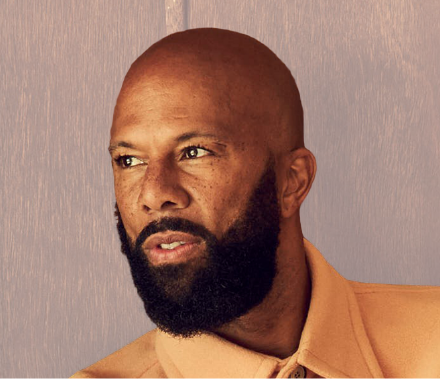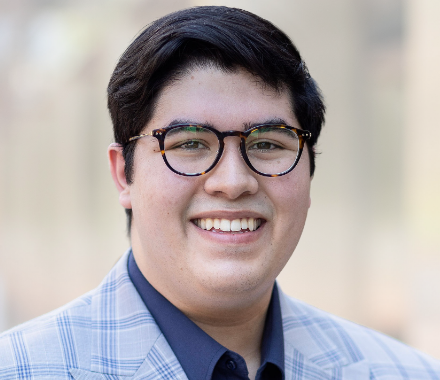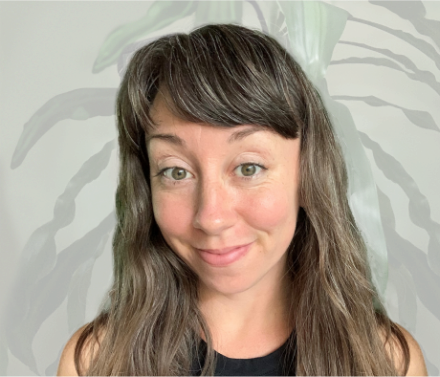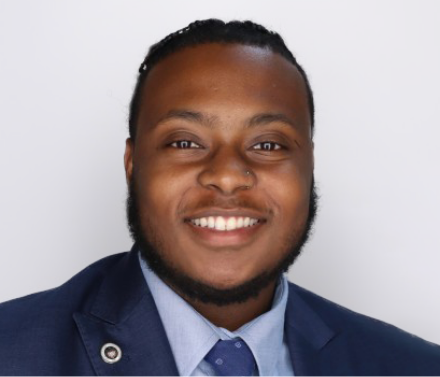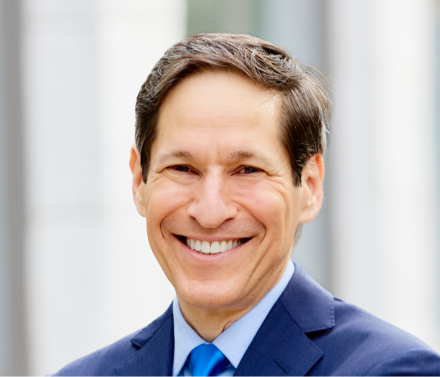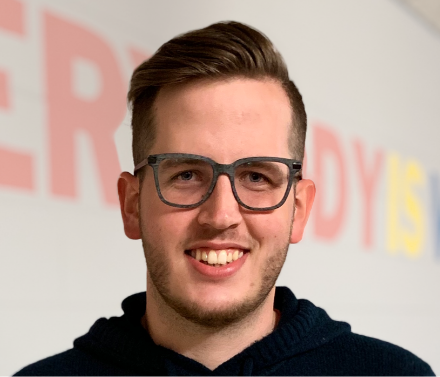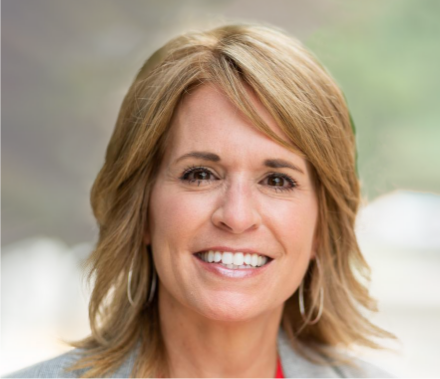THERE ARE NO silver bullets in education. You’ve got to get the hammer on a lot of things at one time to really see long-term, transformational change.
There’s an interesting political will now that did not exist three or four years ago. We have a real opportunity to integrate mental health and wraparound social services in schools, really integrating curriculum and student time with social services and parents. We just can’t ignore that anymore. It’s impossible to expect students to perform when lights are cut out at home, or violence is happening. Really, it’s like we need a new idea: What are the social determinants of education? And how do we radically integrate them?
I think we should re-imagine education by asking how and who should educate us. It’s not so much about what we teach—it’s every mechanism and who is getting to educate our students that we should rethink.”
Within those programs and initiatives, there’s incredible power. I’ve learned this in my own life. It’s the personal touch. You never know when the opportunity for transformation can open up with a student or a teacher. The more you have that continuous, intrusive contact, it can happen. I’m optimistic that it will happen if we’re really intentional about building relationships.
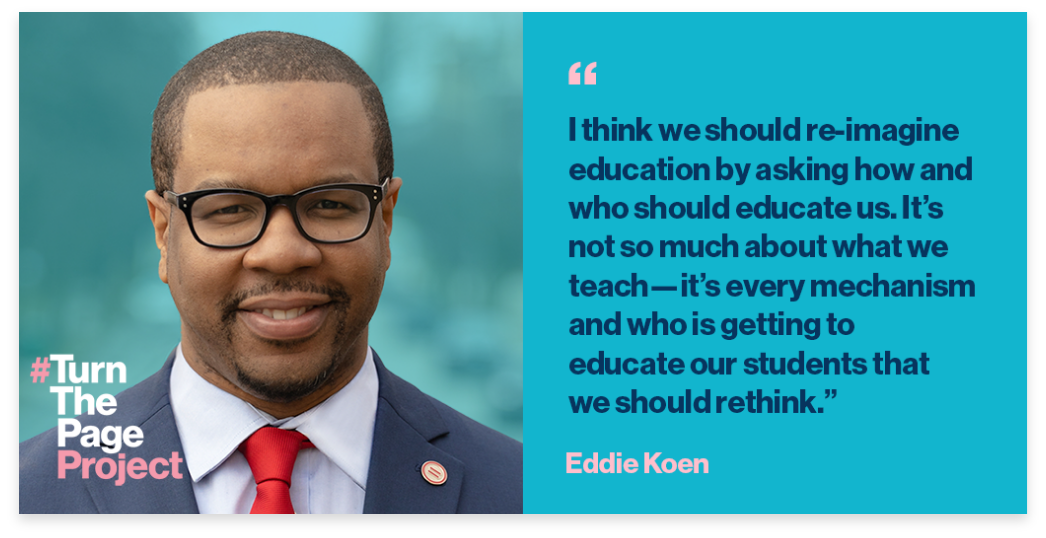
SHARE Eddie’s STORY!
When you look at the schools and districts that are performing well, they’ve figured out, “Hey, if we take care of the whole child, it will pay dividends for student performance.” And then they have the right partners to come to the table. They have the fraternities and sororities come to the school, who look like the kids and have a long-term commitment. It’s not a white savior role. And there’s a dual benefit. It’s power from identity and seeing other mentors who look like them doing amazing things.
I think we should reimagine education by asking how and who should educate us. Instead of asking “who has capacity”, what if we asked “where is the real capability?” And then when we’ve found those folks, we build capacity around them. It’s not so much about what we teach—it’s every mechanism and who is getting to educate our students that we should rethink.
